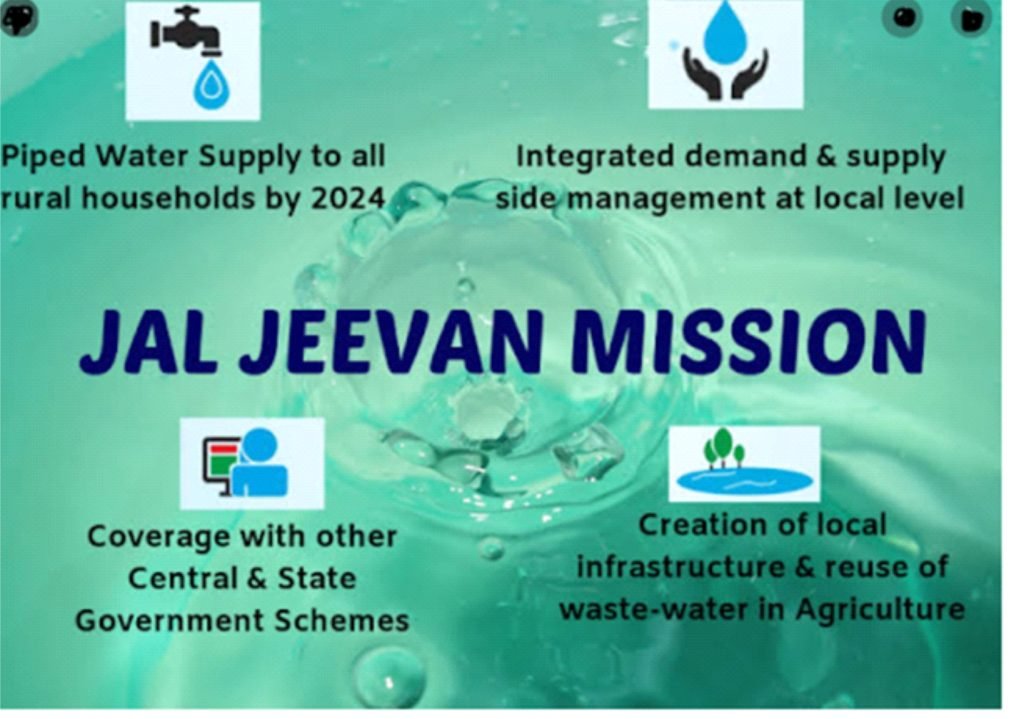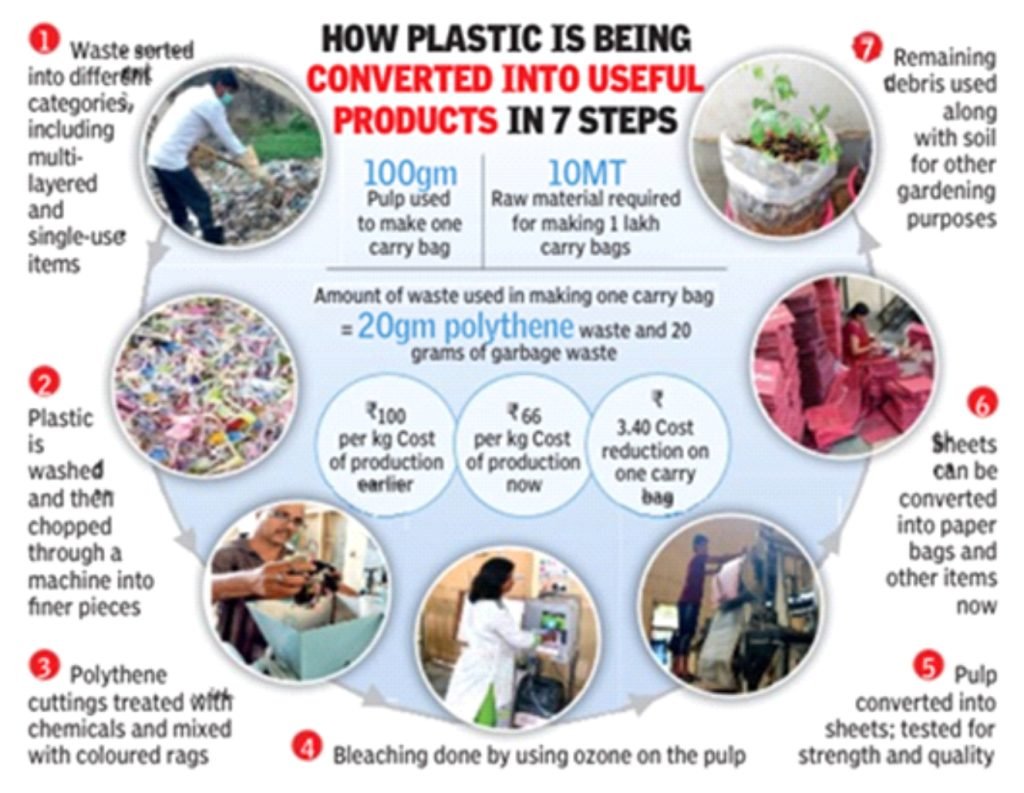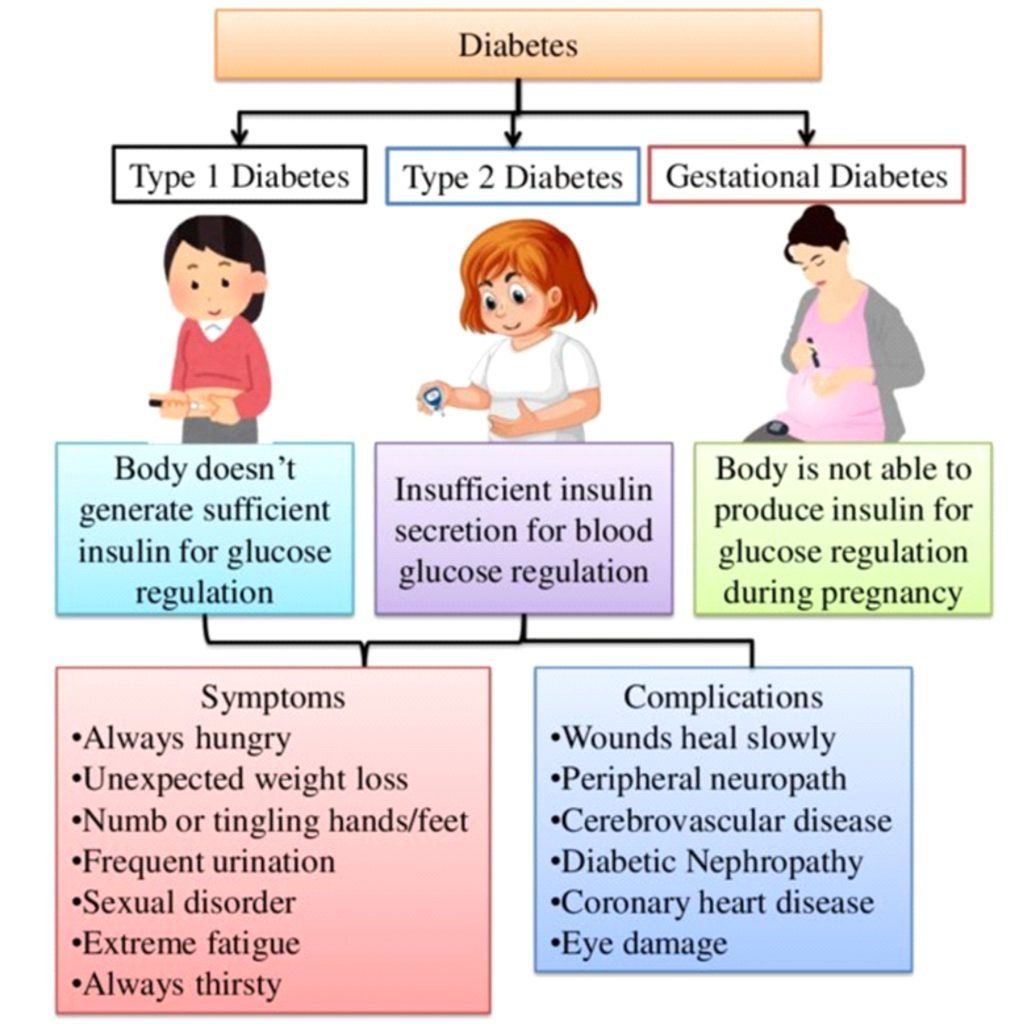Jal Jeevan Mission App
Down to earth
GS 2: Government Policies and Interventions
Context:
- Prime Minister launched a newly designed Jal Jeevan Mission (JJM) mobile application on Gandhi Jayanti 2021.
About:
- The app would enable anyone to fund provision of tap water in rural parts of India.
- The prime minister also released the progress report of the JJM and a manual for the utilisation of the 15th Finance Commission grant for rural local bodies.
- He released a framework for water quality monitoring and surveillance as well as a ‘margdarshika’ (guide) for Gram Panchayats and paani samitis(village water and sanitation committees under the JJM).
JJM:
- The JJM was launched in 2019 by the Union Ministry of Jal Shakti to ensure 100 per cent functional tap water supply in rural areas by 2024.
- The mission also ensures functionality of existing water supply systems and water connections; water quality monitoring and testing as well as sustainable agriculture.
- It also ensures conjunctive use of conserved water; drinking water source augmentation, drinking water supply system, grey water treatment and its reuse.
- As on date, tap water supply has been provided in 772,000 (76%) schools and 748,000 (67.5%) anganwadi centres.
- JJM was a decentralised initiative driven by rural communities and women.
- The provision of an assured tap water supply in homes relieved people, especially women and young girls, from the drudgery of fetching water over long distances.
- The newfound time could be used for income generation activities, improving tourism, learning new skills, supporting children’s education, etc.

Management:
- The JJM is managed by paani samitis to plan, implement, manage, operate and maintain village water supply systems.
- These consist of 10-15 members, with at least 50 per cent women members and other members from self-help groups, accredited social and health workers, anganwadi teacher, etc.
- The committees prepare a one-time village action plan, merging all available village resources.
- The plan is approved in a Gram Sabha before implementation.
New eel species
Down to earth
Prelims facts
Context:
- A new species of swamp eel belonging to the genus Rakthamicthys that is endemic to India was discovered in a well in Mumbai.
About:
- It was named Rakthamichthys mumba, a hat tip to the city it was found in.
- Unlike other species of its genus, the mumba lacks eyes, fins and scales, has jaws equal in forward extent, different gill aperture, crescentic-shaped cephalic.
- The species has a slender, sub-cylindrically elongated body and is cord or thread-like with striations on the muscle.
- The middle portion of the bulbous head is the deepest and widest part of its body.
- All teeth of the species are similar, small, stout, pointed, recurved and closely set.
- The body is pinkish-red with numerous blood vessels all over.
- Rakthamichthys mumba differs from its congener from Western Ghats of India by the possession of jaws-projecting forward equally, when viewed laterally, absence of eyes and having more vertebrae.
- Members of the family synbranchidae are very peculiar, relict lineages of percomorphs, consisting of eel-like fishes, distributed across all countries except Antarctica.
- Presently, this family consists of 26 valid species and are unique among teleosts by lacking paired, median and caudal fins.

Retrospective Tax
The Hindu
GS 3: Economy
Context:
- The Central government has notified rules for implementing the ‘Taxation Laws (Amendment) Bill, 2021’.
About:
- Accordingly, the amendment bill notified on October 1, 2021, will enable the scrapping of the contentious retrospective tax demand provisions.
- It was passed by the Parliament in the Monsoon Session.
- Significantly, the notification of the bill is expected to end the much stretched tax disputes with UK’s Cairn Energy, and Vodafone Plc.
- The Bill has amended the Income Tax Act, 1961 so as to provide that no tax demand shall be raised in future on the basis of the said retrospective amendment for any indirect transfer of Indian assets if the transaction was undertaken before May 28, 2012 – when the finance bill was passed by the Parliament in 2012.
- The 2021 Act also provides that the demand raised for offshore indirect transfer of Indian assets made before May 28, 2012 shall be nullified on fulfillment of specified conditions.
- Besides, the amount paid or collected in these cases shall be refunded, without any interest.
- This Bill would give Cairn Energy and Vodafone Plc a window to do away with the arbitrations and settle their long-drawn tax disputes with the government.

A tiny plant that can ‘digest’ low density plastic sheets
The Hindu
GS 3: Environment and Conservation
Context:
- Researchers from University of Madras and Presidency College, Chennai, have isolated an alga that breaks down low density polyethylene.

Plastic pollution:
- Around 5.6 million metric tonnes of plastic waste is generated each year in India.
- Only 60% of the plastic used in India is collected and recycled. Hence, a large proportion of Plastic waste is continuing to accumulate and leading to adverse environmental impacts.
- The usual means of disposal of plastic waste involves incineration, land-filling and recycling.
- These methods have limitations and also sometimes produce side-effects that are hazardous to the environment.
- Hence, there has been growing emphasis on biodegradation methods that are safe and environment friendly.

About:
- The alga identified is microalga Uronema africanum Borge. This is a species of microalgae that is commonly found in Africa, Asia, and Europe.
- The alga used for the study has been harvested from a lake in Chennai.
- The microalga was found to produce enzymes, hormones, toxins such as cyanotoxins and some polysaccharides which were able to slowly degrade polyethylene into monomers which will not have harmful effect in the atmosphere.
- Low-density polyethylene is highly resistant to degradation.
- The researchers are planning to collaborate with industry to take up this technology in to a pilot scale and finally large-scale study.
Significance:
- The development gains significance given that the identified algae could be used as an agent of biodegradation of plastic sheets and thus it offers a solution to Plastic pollution in India.
BP, cholesterol control key for Type 1 diabetics
The Hindu
GS 2: Health
Context:
- According to a pan-India study of long-term survivors with Type-1 diabetes (T1D), good control of not only blood sugar but also blood pressure and cholesterol is essential for survival and a good quality of life among people with the condition.
Diabetes
- It is a disease that affects how the body uses glucose.
- The body needs glucose to keep running. If someone has diabetes, he or she has trouble with a hormone which is called insulin.
- Insulin is made in the pancreas, and it lowers the level of glucose in the blood.
- Diabetes is a kind of metabolic ailment in which the body is incapable of producing insulin, leading to high blood glucose in the body leading to cardiovascular diseases, kidney ailments, eye problems, etc.
There are three main types of diabetes:
Type 1 diabetes:
- Type 1 diabetes used to be called juvenile-onset diabetes.
- It is usually caused by an auto-immune reaction where the body’s defence system attacks the cells that produce insulin.
- People with type 1 diabetes produce very little or no insulin.
- The disease may affect people of any age but usually develops in children or young adults.
- People with this form of diabetes need injections of insulin every day in order to control the levels of glucose in their blood.
- India is home to more than 95,000 children with T1D, reported to be the highest in the world, according to the 9th International Diabetes Federation Atlas. Given that life expectancy in India is in general lower, the subject definitely needs attention.
Type 2 Diabetes:
- Type 2 diabetes used to be called non-insulin dependent diabetes or adult-onset diabetes, and accounts for at least 90% of all cases of diabetes.
- It is characterised by insulin resistance and relative insulin deficiency, either or both of which may be present at the time diabetes is diagnosed.
- The diagnosis of type 2 diabetes can occur at any age.
- Type 2 diabetes may remain undetected for many years and the diagnosis is often made when a complication appears or a routine blood or urine glucose test is done.
- It is often, but not always, associated with overweight or obesity, which itself can cause insulin resistance and lead to high blood glucose levels.
Gestational diabetes:
- Gestational Diabetes (GDM) is a form of diabetes consisting of high blood glucose levels during pregnancy.
- It develops in one in 25 pregnancies worldwide and is associated with complications to both mother and baby.
- GDM usually disappears after pregnancy but women with GDM and their children are at an increased risk of developing type 2 diabetes later in life.
- Approximately half of women with a history of GDM go on to develop type 2 diabetes within five to ten years after delivery.


